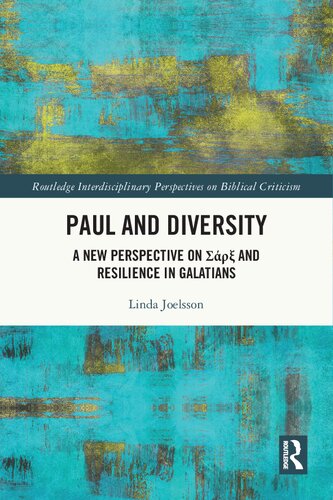

Most ebook files are in PDF format, so you can easily read them using various software such as Foxit Reader or directly on the Google Chrome browser.
Some ebook files are released by publishers in other formats such as .awz, .mobi, .epub, .fb2, etc. You may need to install specific software to read these formats on mobile/PC, such as Calibre.
Please read the tutorial at this link: https://ebookbell.com/faq
We offer FREE conversion to the popular formats you request; however, this may take some time. Therefore, right after payment, please email us, and we will try to provide the service as quickly as possible.
For some exceptional file formats or broken links (if any), please refrain from opening any disputes. Instead, email us first, and we will try to assist within a maximum of 6 hours.
EbookBell Team

4.1
30 reviewsThis book investigates attitudes toward diversity as expressed in Paul’s letter to the Galatians and proposes a renewed understanding of the term σάρξ as used in this letter. Σάρξ (sarx) is usually translated as "flesh" and has often been perceived in theological studies as a complicated and highly polysemous term. It is also a word whose interpretations have had far-reaching social, political, and religious consequences throughout history. The author argues in this volume that for Paul the term σάρξ is commonly adopted with reference to the collective group, and in light of a sense of collective identity in particular. A key assertion is that Paul was and remained a Jew and also continued to be deeply concerned with the prospects for the peaceful co-existence of Jews and Gentiles in the assemblies of God. The chapters draw on perspectives from classical rhetoric, modern linguistics, and social systems theory in order to describe the communicative structure of the letter, the construct of collective identity as described within this setting, and the potential for resilience in this construct. Offering a more coherent reading of Galatians, the book contributes positively to current discussions in Pauline studies and will be of interest to scholars of biblical studies and theology.